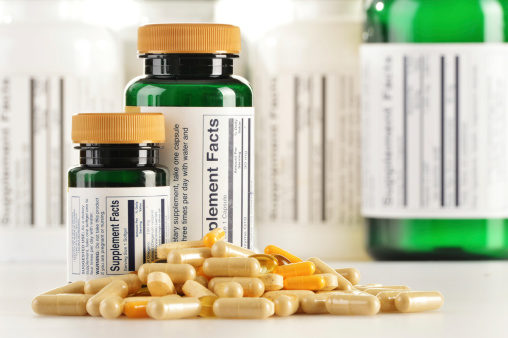New York, NY—New York Attorney General Eric T. Schneiderman has accused four major retailers of adding filler ingredients to store brand herbal products that were not mentioned on the label. Worse, several active ingredients that should have been in formulas were nowhere to be found, according to Schneiderman.
In letters sent to the retailers—Target, GNC, Walgreens and Walmart—the Attorney General’s office called for an immediate halt of sales of certain popular herbal supplements, including St. John’s wort, echinacea, ginseng and more.
The cease-and-desist orders were sent out following a series of DNA barcoding tests done on private label herbal supplements from the various retailers. The formulas in question were checked against the stated content on the labels. Allegedly, only 21% of the tested supplements showed verified DNA of the plants listed on the labels, with 79% either showing no DNA for the labeled content or verifying contamination with other materials. Such unlabeled filler included rice, beans, pine, citrus, asparagus, primrose, wheat and wild carrot. All products were sold in New York, and testing was carried out by James A. Schulte II, Ph.D., of Clarkson University in Potsdam, NY.
In a statement, Schneiderman remarked that “this investigation makes one thing abundantly clear: the old adage ‘buyer beware’ may be especially true for consumers of herbal supplements.”
Citing the potential dangers of contamination for consumers with allergies, he continued by placing the onus on these large companies, saying “American corporations must step up to the plate and ensure that their customers are getting what they pay for, especially when it involves promises of good health.”
While these results could have major repercussions for the natural supplements industry at large, the method by which the Attorney General came to these accusations has also raised some questions. In response to a query from WholeFoods Magazine, GNC stated that the DNA barcoding technology in question has not been approved by the U.S. Pharmacopeia “and may not be appropriate for the testing of these herbal products.” The firm added, “We stand behind the quality, purity and potency of all ingredients listed on the labels of our private label products, including our GNC Herbal Plus line of products.”
Steve Mister, president and CEO of the Council for Responsible Nutrition (CRN), agrees that the DNA barcode testing method used on the supplements has been criticized by botanical scientists as to its validity for use on finished products.
Mister also explains that the tests only show the presence of potential contaminants in their results, but not amounts. There are established legal thresholds that allow for trace amounts of gluten, rice, beans, citrus and more. At these levels, they are considered to not be potentially harmful and are not required to appear on labels.
Additional information from the American Botanical Council suggests DNA testing is not reliable for herbal extracts since “little or no DNA is extracted in many commercial extraction processes…Additional testing using microscopic analysis and validated chemical methods should be conducted to confirm the initial results upon which the Attorney General is acting.”
In testing its private label supplements, GNC says it uses other “validated and widely used testing methods, including those approved by governing bodies like the United States Pharmacopeia and the British Pharmacopeia.”
Ultimately, Mister reminds us that due to these concerns, DNA barcode testing is not required by the U.S. Food and Drug Administration, and suggests that the Attorney General’s office "subject its own questionable testing methods to the same public scrutiny and peer review that he has called upon for our products.”
UPDATE: On February 4, GNC Holdings, Inc. said it would voluntarily remove the products cited in Schneiderman’s letter from store shelves. The retailer also said it gave Attorney General’s staff a “full and robust response” to its questions about GNC’s process for authenticating the content of its GNC Herbal Plus. It will also provide finished product testing data generated from validated analytic protocols. In a statement, the retailer noted, “GNC is confident that its response will demonstrate that the five products in question are fully compliant, safe and properly labeled. GNC is hopeful that the Attorney General’s staff will promptly reach the same conclusion.”
UPDATE: Late on February 6, lawfirm Hagens Berman of Seattle, WA, filed a class action lawsuit in the state of Illinois against GNC, Target, Walgreens and Walmart for allegedly duping consumers with "fake and fraudulent products."
Published in WholeFoods Magazine, March 2015 (online 2/3//15)










